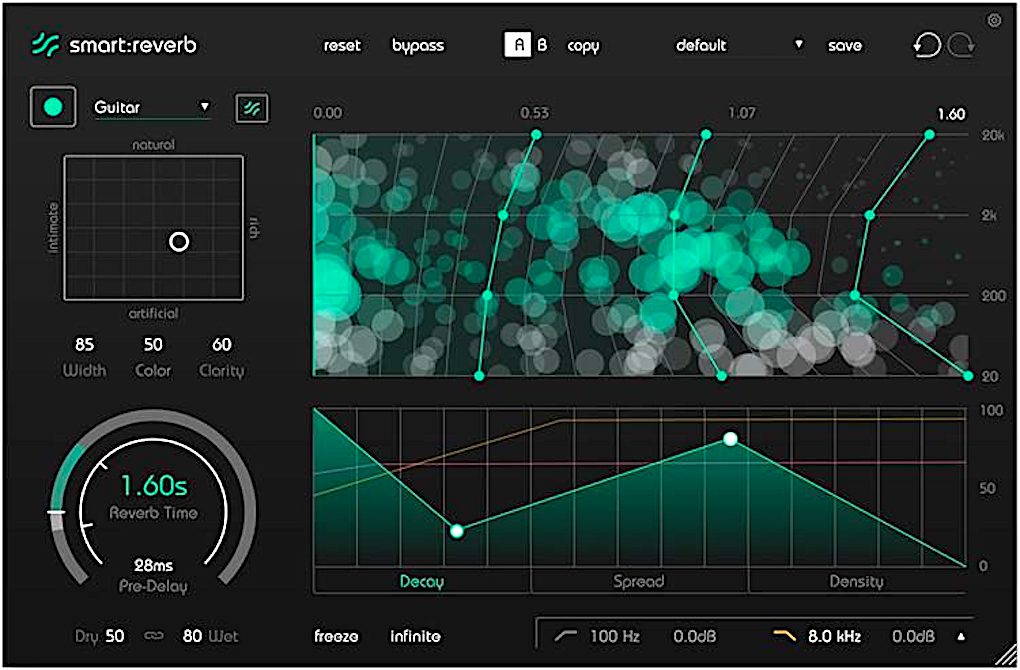- in Production by Bobby Owsinski
New Music Gear Monday: Sonible smart:reverb Plugin
AI-driven plugins have been with us for a number of years now, although they’ve not had the hype that the current batch of non-audio AI apps (like ChatGPT) have been getting. That doesn’t make them any less effective, and in fact, they provide not only a new way to interface with the plugin but the possibility of better results as well (more on that later). One company that has gone heavily in that direction is Sonible, and its latest smart:reveb AI-driven plugin takes reverbs to a new level.

smart:reverb is an algorithmic reverberation plugin with a unique interface and some new parameters. The reverb is computed based on the incoming signal, instead of using a steady-state algorithm or convolution engine, which is a departure from most reverb plugins on the market. Plus, it’s “Learn” function analyzes the signal to provide the most appropriate reverb settings.
New Parameters And Displays
Although there are a few new parameter departures, there are some traditional ones that you’re probably used to. Reverb Time and Pre-Delay are still there on the large lower left display, and High and Low-Pass Filters can be found on the bottom right. That’s where the similarities end.
On the top left is a Reverb Matrix that allows you to adjust between Intimate and Rich, Natural and Artificial, and anywhere in between. Below that are Reverb Character controls for Width, Color and Clarity. On the top right is an unusual readout called the Particle Display that monitors the reverb’s anatomy and its current activity in different frequency bands. Once the learning process is finished, you can also freely adjust the decay rates in different bands using the interactive spectral shaper grid.
Below that is the Temporal Shaper display that monitors the reverb’s decay, spread and density evolvement over time. Once the learning process is finished, you can freely adjust the temporal behavior
using the interactive shaper lines as well.
And It Learns
Speaking of the learning process, that’s available on the top left. It allows you to either select a known profile (like drums, guitar, snare, keyboards, etc.) or use a record button so smart:reverb can learn your signal. By the way, the plugin works just fine without using a profile or the learning process, but why not use everything if it’s available?
smart:reverb is available for around $145 after currency conversion and there’s a free 30 day trial. It’s also available for both Mac and PC platforms in most plugin formats. You can find out more here, or watch the video below.

